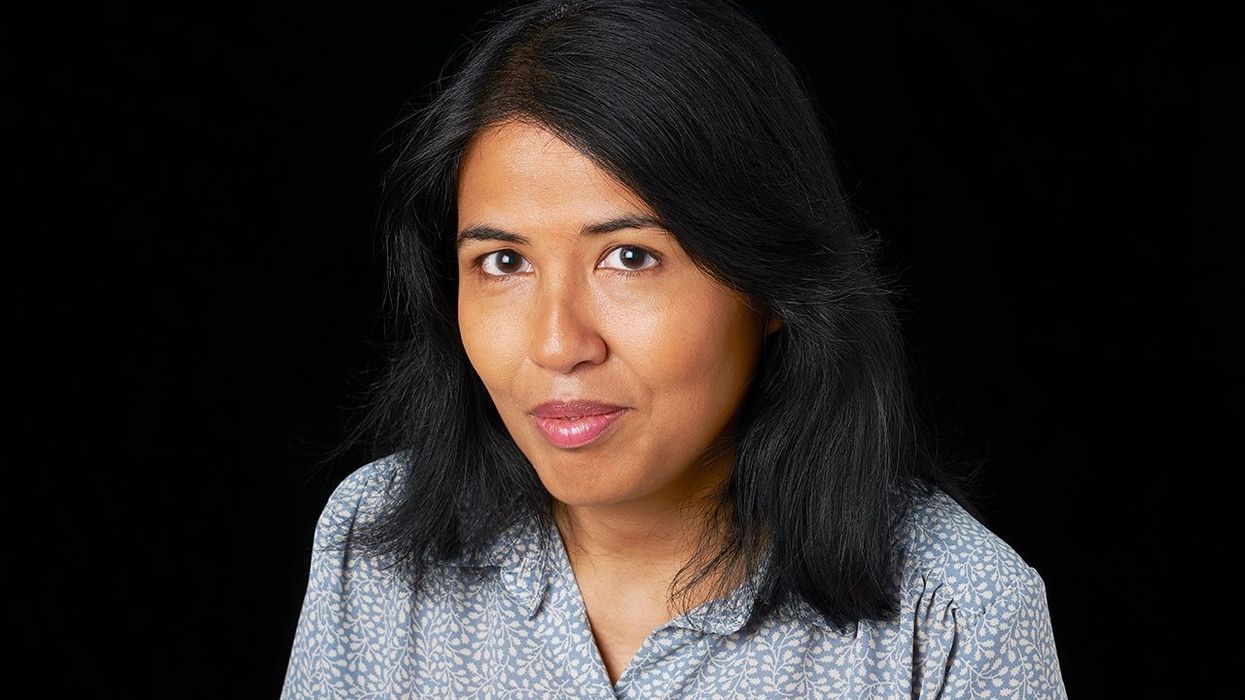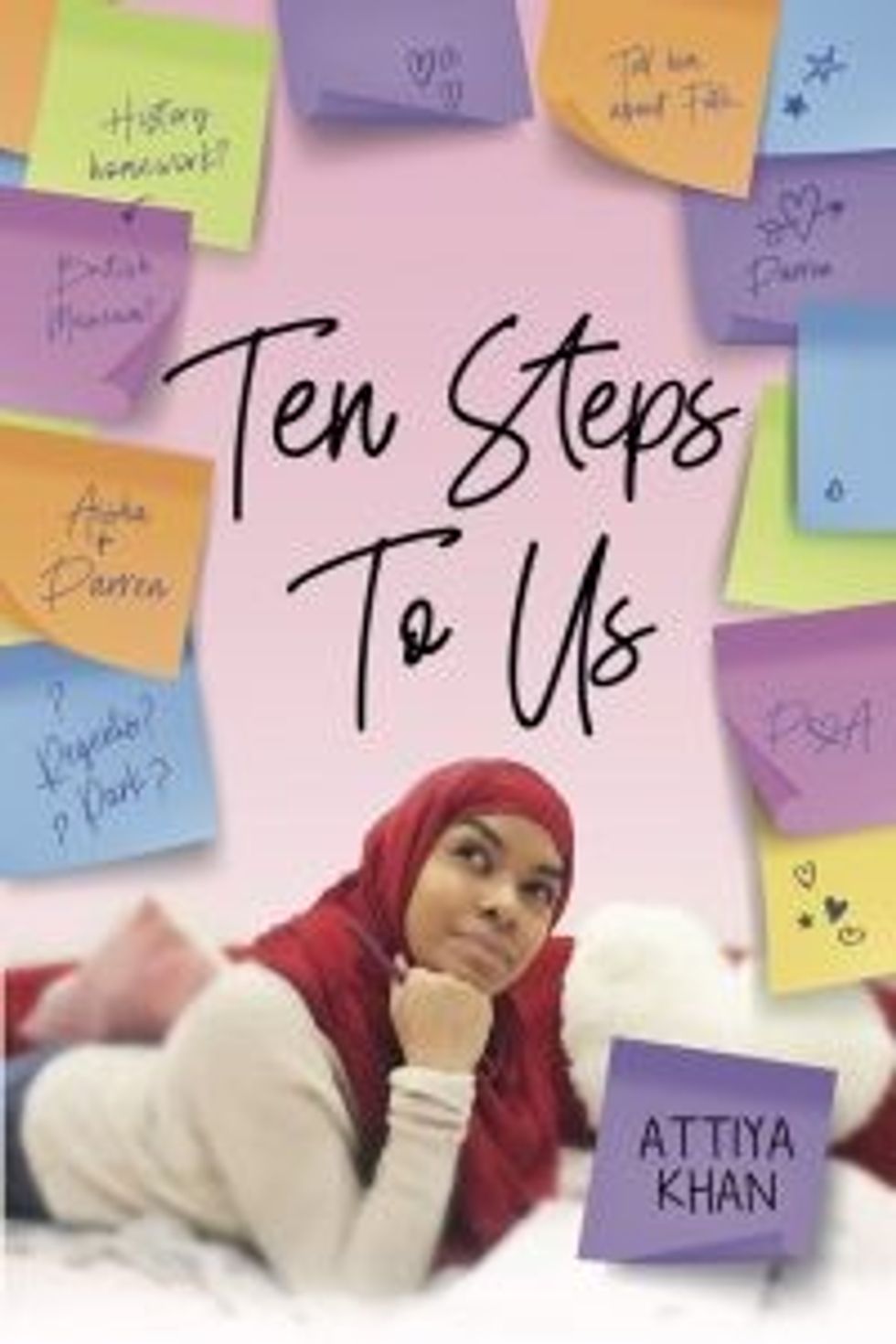ATTIYA KHAN DISCUSSES HER COMING-OF-AGE DEBUT NOVEL
HAVING a novel published is something Attiya Khan had wanted since she was a little girl, and that dream finally came true earlier this month with her delightful debut book Ten Steps To Us.
She wrote an opening scene during a creative writing workshop, which blossomed into a full-blown story of crosscultural forbidden love, after getting great feedback. The successful London-based doctor and devoted mother of three’s coming-of-age teen romance aimed at the young adult fiction readers, revolves around a devout Muslim girl who unexpectedly falls in love with a boy of a different faith. In the process, the story tackles important themes and emotions relatable to young readers.
Eastern Eye caught up with Khan to discuss her new novel, the challenges of writing it and key messages it conveys.
Tell us something about the story of your debut novel?
Aisha is a devout hijab-wearing Muslim living in an area of Kent where there is very little ethnic diversity. She becomes infatuated with new boy Darren, a non-Muslim who has moved from East London and helps her deal with some racist bullies. She knows she shouldn’t be attracted to him but can’t help it. She tries praying and fasting but none of it helps get rid of her feelings for him. She devises a plan with the hope that she can keep both the boy and her faith. Unfortunately, it doesn’t go as she expects.
What is it that inspired your interesting protagonist?
The book is not an autobiography but there are elements of myself in Aisha. As a Muslim girl growing up in Kent, I often felt isolated and didn’t quite fit in. I’m very interested in the angst people feel when they are caught between two cultures. I wanted to play with the idea of being stuck in the middle, and the confusion and pain it brings when you don’t know which way to turn.
What kind of readers are you hoping will connect with the story?
Honestly, anyone and everyone! Anyone struggling to deal with cultural identity, faith, family and falling in love with someone they know is off limits.
What made you want to write young adult fiction?
I have three teenage kids and remember my daughter saying there were so few books which she could relate to, due to the lack of BAME characters. This really spurred me on to write such characters. I also think the angst and pain you feel as a teenager, when learning who you are as a person, are so interesting to write about, as there is so much conflict.
Is there any part of the book that is your most favourite?
I like the beginning when Aisha doesn’t quite realise she has fallen in love with Darren and finds herself thinking about him all the time, without knowing why. I like the way she struggles with her feelings and tries various strategies to drive the thoughts away, none of which work.
Did you learn anything new while writing this book?
I learned so much. This is my debut novel and I’m a doctor by profession. I was taken completely out of my comfort zone learning to write creatively and explore ideas about love, religion and coming of age, a sharp contrast from my day job. I remembered what it was like being a teenager, being angst-ridden and hopelessly in love with someone off limits.
Is there a key message you want to convey through the book?
Mainly that it’s okay to be confused about who you are and to feel torn. You don’t have to be perfect to be a Muslim. Religion is a very personal thing, and it really is between you and God. Everyone finds their own way.
How did you manage to write a book, in between being a mother to three teenagers and a doctor?
It has been very challenging, especially with the pandemic when work became very, very busy. However, for me writing is an escape from the stress of day-to-day life. I also got a lot of support from the critique groups I was part of. It is hard but I love it and I guess that’s what kept me motivated.
Will you write another book?
I am in the middle of writing a GP thriller. Again, I must stress this is not an autobiography! It’s about a doctor with mental health problems who is working with another doctor she suspects is a murderer. Is she losing her mind or are her suspicions correct – and if they are correct, how will she get anyone to believe her?
What kind of books do you enjoy reading?
I love all kinds of books; thrillers, crime, romance and literary fiction. At the moment, I am a little bit obsessed with Elif Shafak and am working through all her books. I recently finished The Forty Rules of Love, which is about Sufiism, and I thought it was a masterpiece.
What inspires you as an author?
I think reading is so important. Reading great authors such as Elif Shafak and Kazuo Ishiguro is really inspiring. I also find inspiration through real life, including hearing stories of my patients and the struggles they go through; how they find a way somehow to deal with very real challenges is inspiring.
Why should we pick up your new novel Ten Steps to Us?
If you are looking for something a bit different, with a female Muslim protagonist portraying the various challenges that Muslim teenage girls experience in Britain today, negotiating the ins and outs of love, friendship, family and faith, pick up a copy of Ten Steps to Us.
Ten Steps To Us by Attiya Khan, Hashtag BLAK, September 9 2021, £8.99 paperback, £3.99 eBooks





